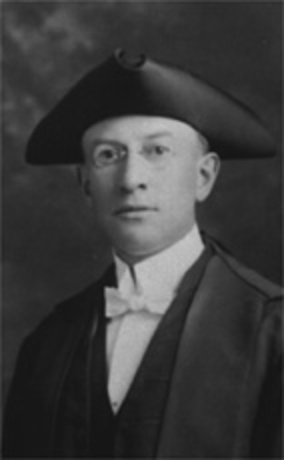Edgar Nelson Rhodes
|
The Hon. Edgar Nelson Rhodes P.C. |
|
|---|---|
 |
|
| 10th Premier of Nova Scotia | |
|
In office July 16, 1925 – August 11, 1930 |
|
| Monarch | George V |
| Lieutenant Governor |
James Robson Douglas James Cranswick Tory |
| Preceded by | Ernest Howard Armstrong |
| Succeeded by | Gordon Sidney Harrington |
| 15th Speaker of the House of Commons of Canada | |
|
In office January 18, 1917 – March 5, 1922 |
|
| Monarch | George V |
| Governor General |
The Duke of Devonshire Baron Byng of Vimy |
| Prime Minister | Sir Robert Laird Borden Arthur Meighen |
| Preceded by | Albert Sévigny |
| Succeeded by | Rodolphe Lemieux |
| Senator for Amherst, Nova Scotia | |
|
In office July 20, 1935 – March 15, 1942 |
|
| Appointed by | R. B. Bennett |
| Member of the Canadian Parliament for Richmond—West Cape Breton |
|
|
In office August 11, 1930 – July 20, 1935 |
|
| Preceded by | John Alexander Macdonald |
| Succeeded by | The electoral district was abolished in 1933. |
| Member of the Nova Scotia House of Assembly for Hants County | |
|
In office June 25, 1925 – August 11, 1930 Serving with Albert E. Parsons |
|
| Preceded by |
James W. Reid John A. Macdonald |
| Succeeded by | Alexander S. MacMillan |
| Member of the Canadian Parliament for Cumberland |
|
|
In office October 26, 1908 – December 6, 1921 |
|
| Preceded by | Hance James Logan |
| Succeeded by | Hance James Logan |
| Personal details | |
| Born |
January 5, 1877 Amherst, Nova Scotia |
| Died | March 15, 1942 (aged 66) Ottawa, Ontario, Canada |
| Nationality | Canadian |
| Political party |
Conservative Party Nova Scotia Conservative Party |
| Spouse(s) | Mary Grace Pipes m, 1905 |
| Profession | Lawyer |
| Cabinet |
Federal: Minister of Fisheries (1930–1932) Minister of Finance and Receiver General (1932–1935) |
| Religion | Baptist |
Edgar Nelson Rhodes, PC (January 5, 1877 – March 15, 1942) was a Canadian parliamentarian from Nova Scotia.
He was first elected to the Canadian House of Commons in 1908 as a member of the Conservative Party. In January 1917, he became Speaker of the Canadian House of Commons when his predecessor, Albert Sévigny, was appointed to the Canadian Cabinet. Rhodes was highly regarded as Speaker and retained the position following the 1917 election that fall, becoming the first Speaker since James Cockburn to preside over more than one Parliament. In 1921, he was made a member of the Queen's Privy Council for Canada before retiring from politics to become president of the British-American Nickel Company, whose previous president had been James Hamet Dunn.
The company failed in 1925, and he returned to provincial politics. Prior to the 1925 provincial election, he was asked to become leader of the Nova Scotia Conservative Party after the leader of the party, W. L. Hall, was assaulted on the waterfront. Rhodes took over the party, and led it to victory in the 1925 election. The Conservatives defeated a Liberal government that had been in power for forty-three years but had been, in its last years, wracked by an economic downturn and severe labour unrest among miners in Cape Breton.
Rhodes ran on a Maritime Rights platform, promising to curtail federal influence and stop the exodus of people from the province. The Tories more than doubled their seats in the Nova Scotia House of Assembly, winning forty out of forty-three seats. The new government introduced pensions for teachers and allowances for widowed mothers. Throughout his term, Rhodes had to contend with continuing violent strikes by miners in Cape Breton during which one miner, William Davis, was killed.
...
Wikipedia
